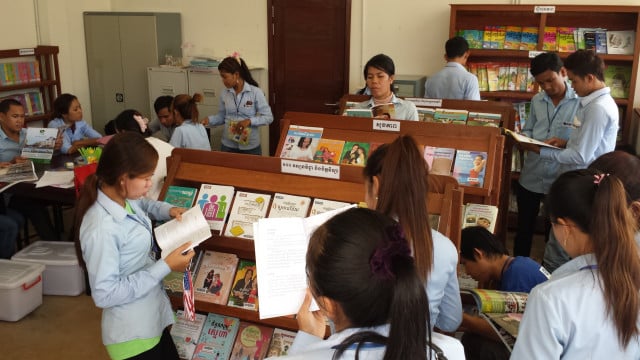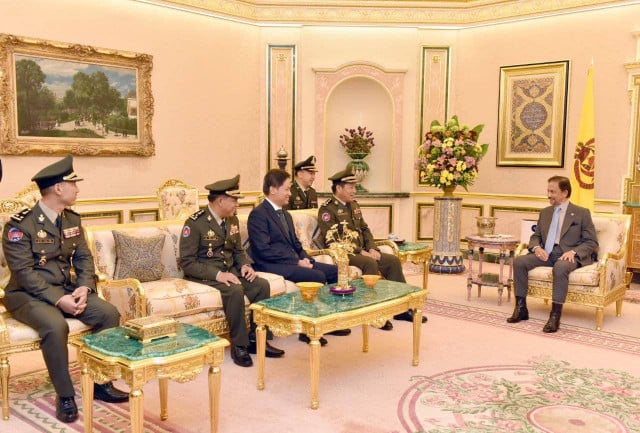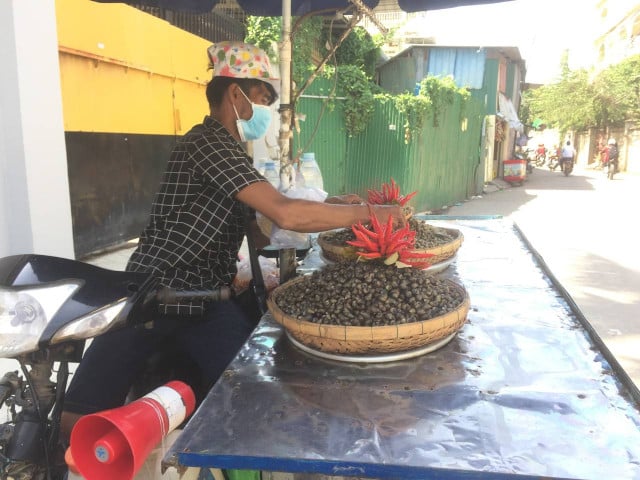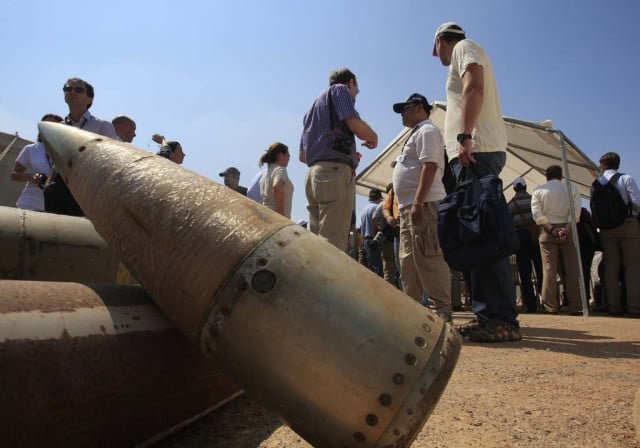Lifelong Learning Must Be Promoted in Cambodia to Materialize Its Vision

- Neak Piseth
- August 6, 2020 10:31 AM
Cambodia is one of the developing countries and ASEAN member states, which intends to become an upper-income country by 2030 and a high-income county by 2050, as postulated in Cambodia’s Education Roadmap 2030. To realize its vision, Cambodia has put its concerted efforts not only in formal education but also in non-formal and informal education as a hallmark of lifelong learning.
As the incidental outbreak of the novel coronavirus (COVID-19) pandemic, the authorities were abruptly forced to call for the closure of public and private schools as safety measures, afraid of getting infection from this disease into the community. In this context, by sole reliance on formal education, the Cambodian government cannot provide equitable quality education to Cambodian students, which produces a considerable gap in terms of educational inequalities.
As a result, distance learning, non-formal and informal education have played a significant role in compensating and complementing this loophole as well as to ensure that everyone can have access to proper education.
Acknowledging the benefits of education in human resource development, and education being the backbone of Cambodian economic development, the Royal Government of Cambodia has established the National Policy on Lifelong Learning on 11 July 2019.
In a similar vein, the Royal University of Phnom Penh, which is one of the oldest universities in Cambodia, has run a Lifelong Learning program ranging from bachelor’s degree to master’s degree to fulfill diversified needs of education and training in a broader context of workplace and community. Besides, lifelong learning existing in all forms of education, such as formal, non-formal and informal education is an effective means to ensure inclusive and equitable quality education.
According to the National Policy on Lifelong Learning, it can be defined as a lifelong learning process from birth to death, for the development of knowledge, skills, attitude, physical fitness and value. As in the 21st century, with the outbreak of globalization, everyone should be trained towards lifelong learning to grapple with the emerging political, environmental and social issues, and economic competitiveness.
However, the Ministry of Education, Youth, and Sports (MOEYs) has done a great job in providing by-all-mean opportunities for all Cambodians to have access to education through running and conducting various activities namely launching campaigns to fight against illiteracy and literacy regression, posting paramount slogans with a view to empowering education, such as “more educated-people teach less educated-people, less educated-people teach uneducated people” popularly ushering in the 1990s, and “learn over and over again, learn endlessly” in the 2000s.
If we take a look at the current performance of the Cambodian education system, we can see that it has profoundly made dramatic quantitative progress, certainly at the primary education level. However, behind a silver lining, there are murky backdrops. As a matter of fact, there are approximately 97 percent of the net enrollment in primary schools in the last decade.
Among those enrolled, 80 percent can manage to finish primary school, nearly 40 percent finished low secondary school, and 20 percent finished upper secondary school. In essence, lifelong learning should be promoted, especially in the form of non-formal and informal education, which could help the Cambodian government bridge this gap of educational inequalities and economic divide as well as produce skilled human resources as to benefit economic growth.
To foster lifelong learning and to revitalize its dream and vision, the Cambodian government should increase the national budget, which contributes amply to the development of community learning centers – a school of non-formal and informal education.
For instance, most of the community learning centers operate in light of the support of developing partners and NGOs, which makes those centers unstable in terms of performance and community participation. Hence, augmenting national budget and strengthening human resources in the field of non-formal and informal education significantly improve community learning centers as well as enhance community participation to attend and absorb lifelong learning skills and knowledge.
In a nutshell, lifelong learning has to be prioritized and more investment needs to be directed to improving quality education in all forms: formal, non-formal and informal education. By the same token, serious policy attention and mechanisms have to be proactively implemented to nurture and support a dynamic culture of lifelong learning and self-directed learning.
Needless to say, Cambodia needs a robust human capital to materialize its vision and dream and to contribute to catching up with neighboring countries as well as achieving sustainable development in the era of knowledge-based economy and industry 4.0. Lifelong learning is crucial in the process of reforming and transforming Cambodia into an advanced country.
Neak Piseth is a founder and project director of “The Way of Life Cambodia.” He has received a scholarship to pursue his master’s degree in Lifelong Education at Chulalongkorn University, Thailand. He completed two degrees – Bachelor of Education in English and International Economics, Institute of Foreign Languages, Royal University of Phnom Penh (RUPP). Moreover, he has worked as an assistant to director at the Cambodia-Korea Cooperation Center, an English lecturer at RUPP, and the author of the book “The Genuine Chapter of Life.















